
Most Read

Is the McDonald's Apple Pie Really Made from Apple?

Is The Subway Footlong Sandwich Really 12-Inches?

How to Tell if Nikes Are Fakes: From Tags to the Stitching
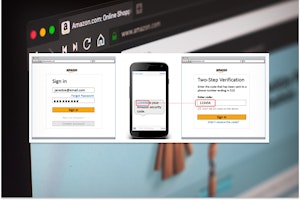
Received an Amazon OTP Text? It Could Be a Scam
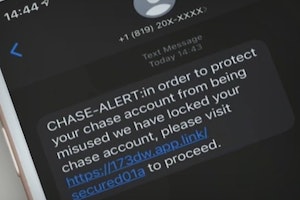
Real Chase Fraud Text Alert or Scam Message?
McDonald's In Depth
- About McDonald’s
- Scams Impacting McDonald’s and Its Customers
- Myths About McDonald’s
- How to Beat McDonald’s Scams
- Protection for McDonald’s Customers
McDonald’s is one of the world's largest fast-food companies, but despite its size, the chain is not immune to being the subject of scams—from mail fraud and phishing to data breaches and more. So whether you’re playing McDonald's Monopoly or completing a simple customer survey for cash, you should always be vigilant with your online activities and personal data to stay safe from McDonald’s scams.
About McDonald’s
McDonald’s originated as a barbeque restaurant in the 1940s, but the chain evolved into a leading quick-service restaurant with an expansive menu. From the Big Mac® and Chicken McNuggets® to McCafé® bakery and drinks, McDonald’s is a top choice for millions of customers around the globe.
According to the National Center for Technology Innovation, parents and young children are the biggest customers of McDonald's. The second and third biggest customers of McDonald’s are teenagers and business owners.
Quick Facts
- Established: May 15, 1940
- Trademarked: May 4, 1961
- McDonald's net worth: ~$170 billion
- Number of locations: 38,695 restaurants in 120 countries
- Daily customers served: More than 70 million customers
Scams Impacting McDonald’s and Its Customers
Several scams impact McDonald’s and patrons of the restaurants. Here are some of the most common and most well-known scams.
McDonald’s CEO Scam
According to an article by Fox News, a person called a McDonald’s in Pennsylvania pretending to be the restaurant’s CEO. This person convinced one of the managers to take $4,000 from the restaurant and purchase gift cards from a nearby gas station convenience store.
The manager, however, did not share the gift cards’ PINs over the phone with this person and instead contacted authorities. It’s not common for scammers to pretend to be the CEO of a major corporation, such as McDonald’s, but they commonly ask their victims to purchase gift cards to pay off some debt.
McDonald's Paid Survey
The Australian Competition and Consumer Commission has alerted consumers to be wary of a McDonald’s customer satisfaction survey email scam. Coming from what appears to be the legit McDonald’s brand, this email encourages consumers to complete a simple customer survey to help improve the quality of the restaurant’s food and service. If the consumer completes the task, they’re promised some cash.
However, this is merely a scam to get personal and financial information from those willing to complete the survey. The scammer asks the email recipient to provide credit card details so they can transfer the bonus payment for completing the survey. Unfortunately, this number only enables the scammer to debit money from the account.
McDonald’s Monopoly Game and Sweepstakes
According to a contests and sweepstakes expert at The Balance Everyday, consumers started to question the legitimacy of McDonald’s Monopoly Game after a scam took place in the early 2000s. A corrupt employee who worked for McDonald’s sweepstakes administration company stole the top game pieces and sold or distributed the winning tickets to people he knew. This employee cheated rightful winners out of $13 million in prize money from McDonald's.
While the Monopoly game is legitimate, it can be abused by scammers. For instance, there’s a recurring annual scam that involves game piece trading. McDonald’s prohibits this to protect potential victims.
Myths About McDonald’s
McDonald’s hasn’t been without its fair share of controversy over the years, especially concerning what their foods actually contain.
Questionable Ingredients
There’s been quite some debate on whether the ingredients used in McDonald’s food items are legit, and some people have accused the fast-food giant of putting outlandish ingredients in the food products. Common myths about the ingredients in McDonald’s food:
- McDonald’s chicken nuggets contain putty.
- The burgers contain cow eyeballs and worm burger filler.
- The fries contain beef.
- The McRib is made from pink slime.
- There are no apples in the McDonald’s apple pie.
Indestructibility of Items
McDonald’s has also been in the limelight due to its burger and fries showing no sign of rot after six years, as shown in the 2004 documentary Super Size Me. This discovery made many consumers wonder whether McDonald’s used super preservatives to keep the meat fresh or even a mold-free meat strain.
To counter this claim of a McDonald's scam, it is believed that bacteria and mold may not grow without sufficient moisture, which makes decomposition unlikely.
How to Beat McDonald’s Scams
We’ve compiled a simple list of tips you can use to beat McDonald’s scams perpetrated by imposters and impersonators. These will help you avoid phishing emails, sweepstakes scams, fake prizes, and more.
- Always verify the address of the sender of suspicious emails.
- Check for spelling errors and unprofessional language in the content of your emails.
- Remain suspicious of any links or attachments in an email and refrain from clicking.
- Install antivirus and firewall software and keep it updated.
- Never pay a fee for taxes, shipping, and handling, or processing to get a prize.
- Don’t enter contests where you can pay to increase your odds of winning.
- Don’t enter contests that require financial information for you to claim a prize.
Protection for McDonald’s Customers
According to American Banker, McDonald’s partnered with leading fraud prevention company Sift to streamline mobile ordering and payments outside the U.S. and protect against new scams targeting restaurant-delivery services.
Scams Impacting McDonald's
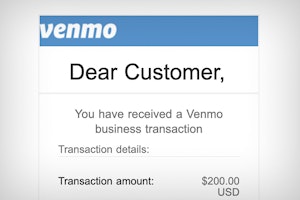
Selling on Facebook Marketplace? Beware of Fake Venmo Emails
Scammers are sending fake Venmo emails to Facebook Marketplace sellers in an attempt to steal login information and money.
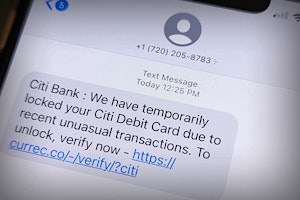
Citibank Text Message Scam: Locked Debit Card Alert Is Fake
If you've received a locked debit card text message from Citibank, it's likely a scam. Don't click on the link and delete the text message.

Real Chase Fraud Text Alert or Scam Message?
If you receive a text message from Chase Bank, don't click on any links or call the phone number listed—it could be a scam designed to steal your information and money.

Amex Fraud Text Alert Scams: Spotting a Fraud
If you receive a text message from American Express, don't click on any links or call the phone number listed—it could be a scam designed to steal your information and money.

Fake Verizon Text Messages: How to Avoid a Scam
Verizon may send you text messages from time to time with account updates or data usage alerts, but beware—most of these aren't really from Verizon but scammers.
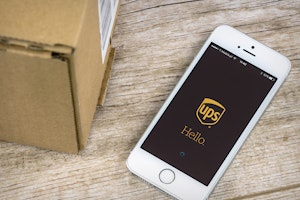
Get an Unexpected Delivery Alert? It May be a UPS Text Scam
Scammers are using SMS messages to send fake alerts to customers regarding a package delivery. Here's what to know about this scam.
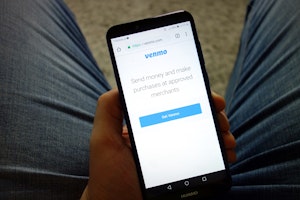
Venmo Text Scam: Don't Fall For These Fake Messages
If you received a text from Venmo with a link to verify a payment or deposit, or are asked to complete a survey in exchange for money, it may be a scam.

Truist Text Alert: How to Identify a Real Text from a Scam
You may think that that Truist have sent you a text alert about your account. Here's how to check if it is actually a scam.

Wait! That Walmart Giveaway Text May be a Scam!
Fake texts are being sent to consumers claiming a hefty sum is waiting for them on a Walmart gift card, but falling for this scam puts you at risk of identity theft.

Received an Amazon OTP Text? It Could Be a Scam
If you received an Amazon OTP text message out of the blue, it could be a sign that someone else is trying to log into your account.
Guides To Protect Against Bars & Restaurants Scams

Is the McDonald's Apple Pie Really Made from Apple?
People have claimed for years that the McDonald's apple pie is actually made from other ingredients like potatoes, so what's the truth?
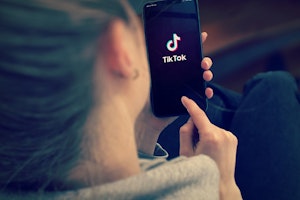
How to Get Verified on TikTok
Securing that little blue checkmark can mean brand collabs, sponsorship opportunities, or protecting your unique content from impersonators.

How to Tell if Nikes Are Fakes: From Tags to the Stitching
Nike is one of the biggest brands targeted by counterfeiters and scammers - be extra careful with Nike products from non-official retailers as you could end up with a fake

Funeral Homes & Prices - What Are The Costs & Your Rights?
Average prices from funeral homes range between $8k to $14k and consumers are meant to be protected by a 'Funeral Rule' - what are your consumer rights?
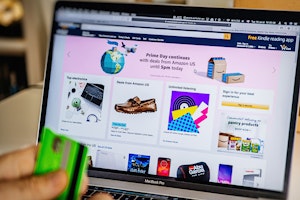
How to View Your Amazon Archived Orders & Hide Search History
If you share your account with multiple users, archiving your past orders is a good way to keep others from seeing your orders and ruining a surprise or seeing private orders.
News About Bars & Restaurants Scams

Urgent CDC Warning: Eye Drops Linked to 3 Deaths, Loss of Vision
The CDC is warning eye drops users of a rare bacterial infection from 2 brands of eye drops. The infection is resistant to antibiotics and has resulted in the loss of vision, loss of eyeballs and the death of 3 patients.

Banks May Refund More Zelle Scam Victims in 2023
Zelle scams have reached a serious volume. New reports suggest that banks are looking at new refund protections for customers in 2023.

Optus Data Breach - One of the Worst Cyberattacks in Australia
Hackers have gained access to 9.8 million customer records from Optus in Australia, exposing personal information such as driver licence, medicare and passport details.

Roe vs. Wade Overturned: Abortion Rights in Your State
Find out what the overturning of Roe vs. Wade means for abortion rights in your state.
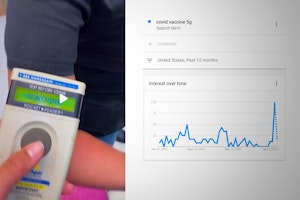
Searches for "COVID Vaccine 5G" Hit All-Time High, But Microchips Definitely Not in Vaccine
The number of people searching for the term "COVID vaccine 5G" on Google has just hit an all-time high, but there's one way to be sure that there are no microchips.